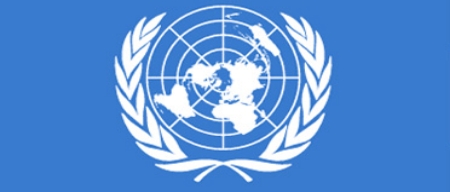Brussels, 1 July 2008: The ITUC is using a new United Nations Forum, meeting in New York this week, to push for decent work in development and poverty strategies. An ITUC Statement to the first Biennial Development Cooperation Forum (DCF) of the UN’s Economic and Social Council (ECOSOC) sets out a series of clear steps which need to be taken to make aid and poverty eradication effective.
“At the policy level, the UN has made great strides in mainstreaming decent work into its development agenda,” said ITUC General Secretary Guy Ryder. “The recent adoption by the International Labour Conference of the ILO Declaration on Social Justice for a Fair Globalisation gives fresh impetus to putting the policy to work in reality”.
In keeping with the new ILO Declaration, the ITUC Statement calls for the decent work agenda to be fully incorporated into National Development Strategies (NDSs), based on the four strategic objectives of promoting employment, social protection, social dialogue and rights at work. Special emphasis is placed on gender equality and non-discrimination as drivers of economic and social development.
The ITUC further calls on multilateral institutions as well as bilateral and multilateral development actors to harmonise their policies with sustainable development objectives, including decent work objectives, and to ensure that policies support rather than undermine these objectives. The Statement points out that aid programmes should fully respect the principles of national policy space, democratic ownership, removal of tied aid and ending regressive economic policy conditionality.
The ITUC’s push for decent work in development will gain further momentum at two important international events later this year. A September meeting in Accra will examine aid effectiveness, and a conference on financing for development will take pace in Doha in November.
Concerning the Development Cooperation Forum itself, the ITUC believes that this new ECOSOC body should become the key global forum for discussing development cooperation, and that the ILO in particular should have a key role in it to ensure that decent work is fully integrated. The DCF should set the agenda on development and aid effectiveness, and operate as a multi-stakeholder policy Forum involving bilateral and multilateral donors and institutions, UN specialised agencies, and civil society organisations including trade unions. It should complement the existing policy dialogues of other relevant fora such as OECD-DAC and the Financing for Development (FfD) process, with development cooperation and development effectiveness as its core mandate, and with a remit to resolve issues of policy coherence with respect to development cooperation.
Consultation with trade unions in both donor and recipient countries constitutes an essential aspect of governance for aid effectiveness, according to the Statement, in line with Millennium Development Goal 8, “promoting global partnerships for sustainable development”.
Please read the full text of the ITUC Statement to the DCF
The text of the ILO Declaration on Social Justice for a Fair Globalisation is available on the ILO website
The ITUC represents 168 million workers in 155 countries and territories and has 311 national affiliates.
For more information, please contact the ITUC Press Department on: +32 2 224 0204 or +32 476 621 018


